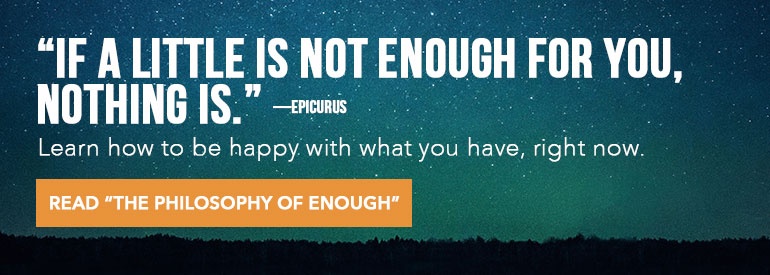 Reading Time: 6 minutes
Reading Time: 6 minutesI’ll be honest — holding a grudge comes naturally to me.
I have a long memory and can recall, in fine detail, all manner of slights, insults, and wrongs made against me for the past forty years. Combined with my love of being right, this leaves me inclined to grasp onto grudges and hold tight with impassioned zeal.
Which makes me qualified to state, after years of experience, that holding a grudge ultimately causes more harm than good.
The Anatomy of a Grudge
Sure, it can feel good for a little while. I get to take the moral high-ground and feel validated by pointing out an injustice. But when I deconstruct the costs of carrying a grudge, it becomes clear it’s not in my best interests. That grudge also brings stress, negative thought patterns, a victim mentality, and an inability to move forward.
I know I’m not alone in holding grudges. The nature of human interactions means that conflict, misunderstandings, biased perceptions, and opposing agendas are inevitable. While most of us try to do the right thing in life, at some point our actions will clash with someone else’s interests.

This divergence can lead to circumstances where one person feels victimized. They feel wronged by the situation and resentful toward the perpetrator. This reaction itself isn’t necessarily a problem — it’s natural to feel upset in such situations, particularly if the other person is close to us. However, if we hold onto that grudge, and refuse to move past it, it can adversely impact our quality of life and impair future interactions.
So, why do we hold a grudge?
In most cases, it comes down to believing we were “right” and someone else was “wrong.” The other person may have treated us poorly, conspired against us to get what they wanted, or acted inappropriately, aggressively, or immorally. We might feel outraged by their behavior and quick to point out how wrong they were and how right we were.
And let’s face it — feeling right can feel good. So, we hang onto that grudge and use it to justify our own behavior and future life choices.
When Grudges Go Bad
Unfortunately, grudges become heavier and tighter the longer we hold onto them. They become more difficult to unravel and ultimately limit our capacity to feel joy, to look forward to the future, to grow and develop, and to have meaningful interactions and relationships.
By hanging onto our grudges, we also hang onto the unhelpful emotions and feelings associated with them, such as sadness, pain, anger, distrust, and resentment. As time passes, those feelings tend to take root and grow, causing significant stress and turmoil.
I’m not sure about you, but I have plenty going on in my life without the heavy baggage of grudges weighing me down. So, after many years spent harboring grudges, I reached a point where I had to let go. I realized I could not achieve the things I wanted to unless I left those grudges behind.
Which meant I had to become comfortable with the concept of forgiveness.
And this proved to be a bigger hurdle than I had anticipated.

What “Forgiveness” Actually Means
To me, forgiveness was all about the other person — they had wronged me, and they needed to make things right before I could forgive. I was treating forgiveness as a conditional state: I could only forgive if I believed the other person deserved it and had demonstrated suitable reparations. If I forgave them beforehand, that meant they had “won” and my forgiveness was an acceptance or approval of their behavior.
Clearly, I couldn’t let go of my grudges if it meant tracking down each of the perpetrators and compelling them to make things right. I was suffering from the common misconception that forgiveness was about reconciliation or condoning the behavior of another person. In fact, forgiveness has little to do with forgetting, tolerating, or accepting another’s actions, and everything to do with releasing our tight grip on a perceived wrong-doing.
When we hold a grudge, we carry a burden. Not only does that burden require a lot of energy to sustain, it strengthens negative thought processes and stores up feelings of resentment, frustration, and anger. That significant burden is ours alone to suffer, through — not the other person’s. As the saying goes, holding a grudge is like drinking poison and expecting the other person to die.
I had to learn how to forgive without involving the other person. I had to be willing to confront the discomfort forgiveness brings and take responsibility for the part I played in the situation.

Thankfully, there are ways to make that process easier. Here are the three tools I learned (and used) to practice the art of forgiveness and finally let go of all that baggage:
1. Remember the Good Times
Think about specific times when things were going well with the other person. Highlighting those good memories can help you recognize that, while things went wrong, things also went right. By softening the harsh edges of a grudge or resentment, it lifts some of the emotional turmoil and brings perspective.
2. Consider the Consequences
Dig into the ways your grudge is affecting you by asking some questions:
- What is this grudge costing you?
- How is it holding you back?
- How does it make you feel?
- How are those feelings affecting your quality of life?
- What challenges do you have in letting go of that grudge?
- How could you overcome those challenges?
3. Write a Letter
Writing down our thoughts and emotions can feel cathartic. As a step toward forgiveness, writing a letter to the other person can help clarify how you feel and how harboring the grudge affects you. This letter doesn’t need to be delivered — it’s an exercise designed to sort through your emotions and put in writing your intention to forgive the other person.
Note: When writing the letter, it’s important to focus on forgiving the person involved, rather than rehashing past events.
Forgiveness Is the Way Forward
Forgiveness is not an instant process and it will take time, particularly if the grudge you’re harboring is long-term. It’s likely to be an uncomfortable process and will force you to confront emotions you’d rather not experience.
That takes courage.
However, simply becoming aware of your anger, resentment, and disappointment can be an important first step and can help you recognize the downside to holding a grudge.
Just remember, forgiveness is about you — not the other person. The goal isn’t to reconcile or repair relationships. It’s about making the decision to forgive the other person and release the binds that hold you back from enjoying life. With practice, grudges will become easier to let go, bringing peace of mind a little closer.









